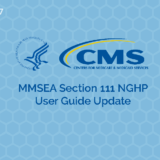LIEN RESOLUTION SERVICES
![]()
 In most cases an individual will incur medical expenses from injury related treatment prior to settlement being reached. Depending on who pays these medical expenses, the party that pays these medical expenses may establish a lien, or a legal claim to the individual’s settlement proceeds until their debt is paid. Medicare liens are usually on all parties’ radar due to the recovery rights provided to Medicare by the federal statute knowns as the Medicare Secondary Payer Act (MSP). Veterans Administration liens and ERISA liens from employer based health plans also have very strong recovery rights stemming from other federal laws. There are also a variety of health plans that have separate contractual rights to recovery and subrogation that follow the applicable state law in the state where the injury took place.
In most cases an individual will incur medical expenses from injury related treatment prior to settlement being reached. Depending on who pays these medical expenses, the party that pays these medical expenses may establish a lien, or a legal claim to the individual’s settlement proceeds until their debt is paid. Medicare liens are usually on all parties’ radar due to the recovery rights provided to Medicare by the federal statute knowns as the Medicare Secondary Payer Act (MSP). Veterans Administration liens and ERISA liens from employer based health plans also have very strong recovery rights stemming from other federal laws. There are also a variety of health plans that have separate contractual rights to recovery and subrogation that follow the applicable state law in the state where the injury took place.
What Is Medical Lien Resolution or Health Plan Lien Resolution?
Medical liens result from the principle of subrogation, which occurs when a third party takes on another party’s legal claim to money owed for debt or damages. While subrogation entails one party actually entering into the injured party’s case, most often what happens is that the entity with the right of subrogation also has a right of reimbursement of paid medical bills. Under this principle, a health plan sets forth a lien on a liability or workers’ compensation settlement or award. Their goal is to receive reimbursement for paying for injury treatment that the party responsible for causing the injury should have paid.
For instance, someone injured in a car crash could face thousands in medical bills, which their health insurance would cover. If the injured party sues or brings a claim against the at fault party for negligence, the health plan would place a lien on the lawsuit’s settlement proceeds to recoup the money spent on the injured individual’s accident related care. Medical lien resolution is the process of satisfying these claims fully and at the lowest expense to the settlement beneficiary.
Lien resolution companies like Medivest work on behalf of clients to investigate subrogation claims for validity and establish what charges are legitimate. Our lien resolution specialists also have extensive knowledge and negotiation skills to request available reductions and work hard to reach a compromise with lienholders like the health plan in our example. As a result, we’re often able to meet the needs of injured party and the health plan(s) and secure larger net settlements for clients.
Benefits of Medivest Medical Lien Resolution Services
Using our medical lien resolution services has many advantages, including:
- Process streamlining: Lien resolution companies centralize all tasks for more efficient operations and reporting.
- Expertise: We have a team of professionals with specialized knowledge and experience to draw on as they work to resolve claims.
- Effective time and expense management: Many states allow attorneys to include our services as a case related cost, freeing them to focus their time and energy on client service instead.
- Better client experiences: By discovering and resolving eligible liens, your clients are less likely to get calls from subrogation companies seeking direct reimbursement.
- Less potential liability: Attorneys using experienced lien resolution companies are less likely to face claims from insurers for repayment.
The Medivest Lien Resolution Process
However, in addition to Medicare liens which should be considered mandatory to resolve due to steep interest and/or penalties for non-payment, the resolution of one or more other healthcare liens should also be negotiated and satisfied from settlement proceeds. Our Lien Resolution Department helps settling parties reduce payment burdens for parties’ past injury related medicals helping them obtain a higher net settlement. Count on Medivest to:
• Direct the communication and negotiations for your lien resolution matters so you can focus on your core business
• Verify the type of liens outstanding
• Investigate liens via web, phone and/or correspondence
• Determine obligations to notify healthcare plans
• Obtain reimbursement demands
• Audit demands for relevance to the case- related injury
• Evaluate available offsets, reductions, and/or opportunities for compromise
• Negotiate satisfactory resolution/obtain best offers depending on authority provided/service desired
The Medicare Secondary Payer Act (MSP) gives Medicare the right to be reimbursed from a settlement, judgment, award, or other payment/arrangement (“Settlement”) when a third party/insurance plan is primary. The Settlement funds are considered primary to Medicare even when liability is denied. Anyone receiving Settlement funds may be liable to Medicare for two times the amount Medicare paid plus interest if not timely resolved. It is best to negotiate Medicare liens prior to Settlement. Even after a Medicare lien is paid, whether prior to or after Settlement, the government may reimburse injured parties based on fairness or financial hardship.
Other Lien Resolution Services
Besides Medicare Lien Resolution, Medivest offers our services for a variety of healthcare liens. Below is a description of the more common healthcare liens that Medivest resolves.
MEDICARE ADVANTAGE – PART C/PART D PHARMACY LIENS
Private insurers that administer Medicare coverage for Medicare beneficiaries are afforded private recovery rights under the MSP. This includes the potential for double damages for lien recovery, just like the government.
MEDICAID LIENS
Medicaid is a needs-based program, funded jointly by the federal and state governments. Each state has different laws and procedures concerning proper notification and lien settlement procedures.
VETERANS ADMINISTRATION/CHAMPVA LIENS
When Veterans are injured on the job and/or injured by a third party, if the VA or CHAMPVA is billed for that injury related treatment, those bills should be satisfied from the settlement.
FEHBA/ERISA PLAN LIENS
For injured persons receiving health care benefits from a FEHBA or ERISA plan, it is likely that the plan has some reimbursement right to insurance settlement proceeds. We have an attorney examine the controlling language of the applicable plan, contact U.S. Department of Labor officials when appropriate, and work to help you decide on the best course of action for your clients.
HOSPITAL/PRIVATE HEALTHCARE LIENS
Hospital liens are governed by state law and usually have strict requirements regarding the perfection of enforceable rights. We are available to confirm and help reduce any outstanding private healthcare bills.
TRICARE LIEN RESOLUTION
Ask us about how our team are experts in working within the specific rules set for Military liens. This allows us to get better results for your clients.






